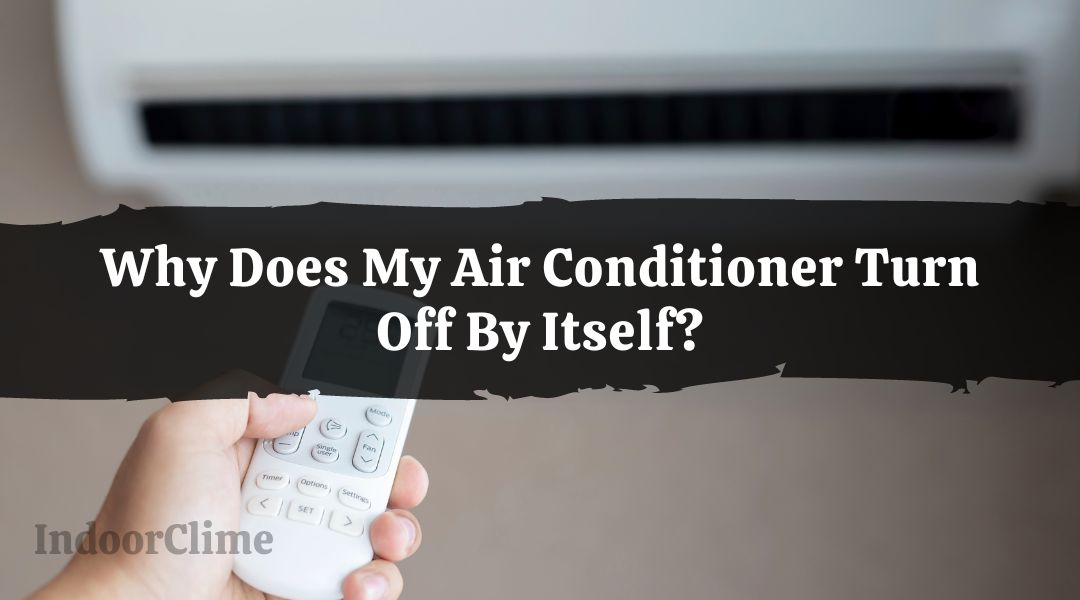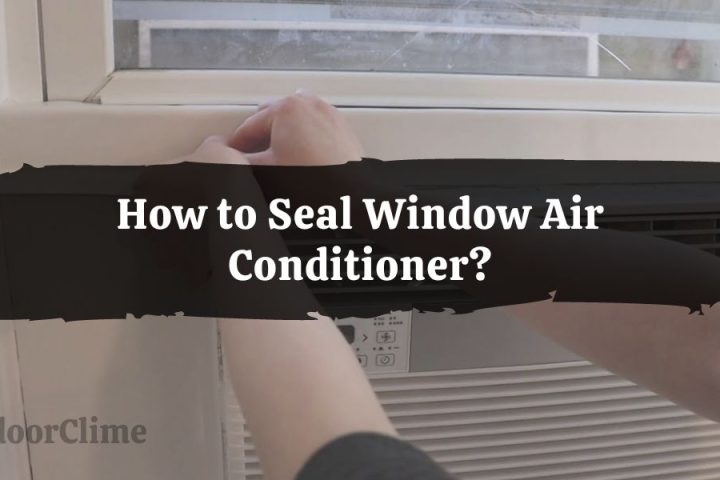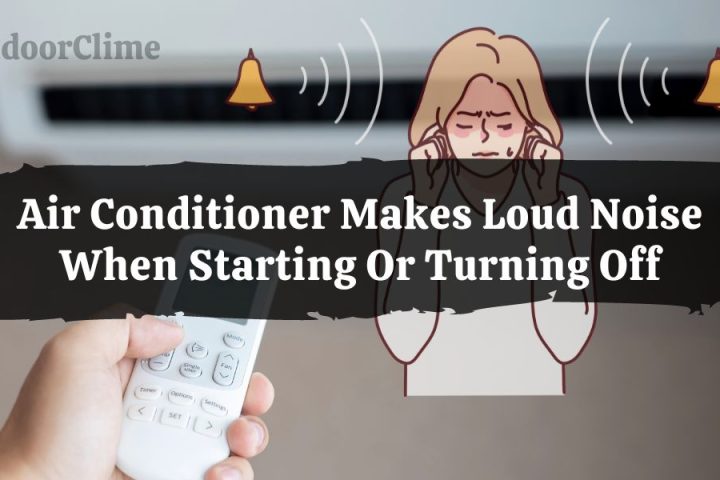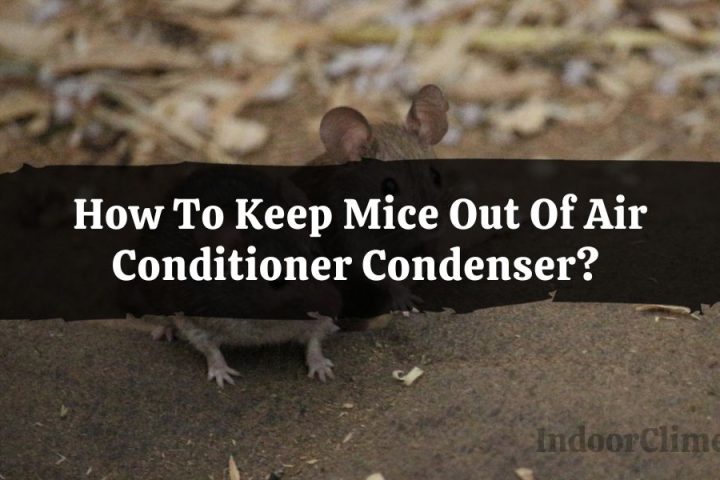An air conditioner proves to be helpful, especially on hot days. Its cooling functions can provide a soothing feeling while inside our home, despite the sun’s scorching heat outside.
It is troublesome when an air conditioner turns off by itself. The last thing we want to happen is to have a dysfunctional AC unit during the hot weather.
Your air conditioner is turning off because of a faulty thermostat, insufficient airflow for the AC unit, or a clogged drain line. Other causes are low levels of refrigerants, short cycling, and problems with the compressor. It may also be because of the dirty air filter.
7 Main Reasons Why Air Conditioners Turn Off By Itself
1. Thermostat Fault
One of the reasons your AC unit is turning off by itself is a malfunctioning thermostat. A thermostat works as the brain of an air conditioner.
The component tells your AC unit when to turn on and off. Aside from that, it also controls the temperature according to what you set.
A thermostat may become faulty because of broken or loose wire connections. Due to this, the connection between the AC unit and the thermostat is disrupted.
If your home has rodents, they may chew the wires. It can also happen if you fail to maintain it regularly. If you notice any broken or loose wire, never try to fix it. Instead, call a professional to do the task.
The life service of a thermostat is only up to ten years. If the thermostat of the AC unit is too old, it is time to replace it with a new one.
A thermostat may also not work correctly if too much dirt is inside it. It may result in inconsistencies and malfunctions, so you must clean it first.
2. The AC Isn’t Getting Enough Airflow

If there is not enough airflow in your room, it will affect the efficiency of the AC unit. Once there is a low airflow, the blower has to work more to get air. It may overheat or shut off, causing the air conditioner to turn off.
If the ductwork of the AC unit is improperly installed or blocked, it will limit the air coming out from the vents. The ductwork typically runs in the attic, basement ceiling, or garage. If you know where the ductwork is located, you can fix it yourself.
You must also check if the vents are not obstructed. Any obstruction will make it difficult for the return vent to get enough air. If any couch or bed is blocking the return vent, remove it immediately.
3. Clogged Condensate Line
When the warm air undergoes condensation, the by-product is in liquid form. The water drips into the coil and down the drain or condensate line. It will proceed to the bottom of the drain pan. Unfortunately, particles like dust, hair, and dirt can clog the drain line.
Once the drain line has been clogged, the liquid will remain on the drain pan until it evaporates.
However, it will lead to humid air, causing mildew and mold. Besides that, it can cause rust to the metal pan and the other components of your AC unit.
When the water overflows, it will leak into your wall. The worse is that it may damage the wires of the AC unit, causing it to shut down or damage the air conditioner permanently.
4. Low Refrigerant Levels
A refrigerant is a crucial liquid or gaseous compound in the AC unit. It is responsible for absorbing the heat of the air and cooling it down. Without refrigerant, your AC unit will not function properly. It may shut down by itself.
Besides turning off by itself, other signs may indicate that your AC’s refrigerant is already running low. One of them is that it takes a long time before the AC unit cools the room.
You may also notice that your AC unit does not provide the temperature you set. A bubbling sound is also coming out of the cooling device.
One of the primary reasons your AC unit’s refrigerant turns low is leakage. Usually, the compressor or the line of the unit may leak. So, you will find a frost forming on the coils instead of dripping water.
5. The AC Is Short Cycling

In a typical scenario, the compressor works when you turn on the AC unit. It will signal the thermostat to set the temperature you entered.
The compressor will automatically turn off after it has done its work. Short cycling happened when you started your AC unit, but it turned on and off during the start-up, failing to have a complete cooling cycle.
But the compressor will turn off when the AC is short cycling even before it signals the thermostat. Once the AC unit turns on, the compressor has to use extra power to do the task.
It may lead to overheating or burning out, damaging your compressor permanently. Unfortunately, replacing compressors is costly.
Your air conditioner may experience short cycling because of the dirty air filter or leaking ventilation system. Aside from that, the refrigerant may be running low, or your AC unit’s thermostat has the wrong calibration.
6. Compressor Problems
The compressor of your AC unit may experience a problem, leading to the malfunction of the cooling device.
Compressors play a vital role in making your air conditioner function. The electricity flows from the compressor to the AC unit and its other components. Once the compressor is faulty, you cannot expect your AC unit to work correctly.
One of the primary reasons your compressor is having problems is electrical issues. Other causes are incorrect suction line sizes, too much or too few refrigerants, dirty coils, or insufficient lubrication.
You must ask a technician to check your AC unit if you suspect problems with the compressor.
7. Dirty Air filter
When the air filter acquires too much dust and dirt, it can freeze the evaporator coil. This is one of the worst effects of a dirty air filter.
The dirt can cover the evaporator coil, slowing down the air circulation. When humidity is present, the dirt may turn into frost, preventing the airflow on the coil. If this happens, the AC unit may shut down. The repair is also costly.
Aside from the frozen coil, a dirty air filter may also lead to higher electricity consumption and poor air quality inside your home.
How do I stop my AC from short cycling?
You need to check the components of your AC unit. Always look at the air filter to see if t is covered with dirt and dust.
Ensure that you wash it regularly if it is washable. It will also ensure that your family is breathing good air quality.
Plus, check if the thermostat is placed correctly so it won’t have confusing readings. Prevent putting it beside the return air register.
If you know how to add refrigerants to your AC unit, add more when they are already running low.
Aside from that, report to a technician immediately if you notice that the refrigerants are leaking. Don’t also forget to check if the compressor is working correctly.
A malfunctioning air conditioner unit may cost you a lot of money for repairs. However, maintenance is much cheaper than replacing new components or a new cooling device.
Having your AC unit checked occasionally by a technician will prevent it from short cycling. A professional will be able to clean the device and do some repairs on minor issues.
People Also Ask
Why does my AC compressor shut off after 2 to 3 minutes?
Overheating is the primary reason your AC compressor shuts off after 2 to 3 minutes. The compressor may quickly overheat, especially if it is clogged with grim.
Call a technician right away to check the AC compressor.
Why does my AC keep turning off after a few seconds?
When the AC keeps turning off after a few seconds, it experiences short cycling. You must check if the components are already failing, broken, or caked with dirt.
Is it normal for AC to turn on and off?
If your AC unit turns on and off quickly, it is experiencing short cycling. Don’t ignore this if it happens to your cooling device since short cycling may shorten its life span.





